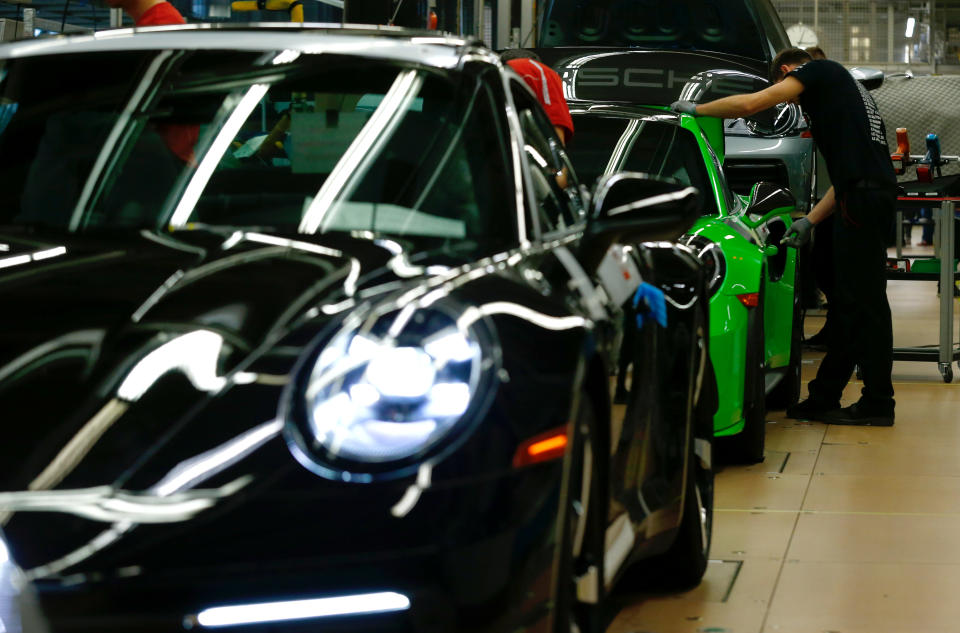German car production dropped dramatically in the last half of 2018

The car industry, the backbone of the German economy, suffered a significant drop in production in the second half of 2018, according to new data from the Federal Statistics Office. Figures released on Tuesday show that production of cars and car parts fell by 7.1% in the second half of 2018, compared to the first half.
The automotive industry’s production drop dragged down Germany’s entire manufacturing sector: Manufacturing production was down 2% in the second half of the year, but just 0.9% excluding the car industry.
Any downturn in car production indirectly affects a host of other businesses in Germany, from iron and metal manufacturers, to leasing and dealerships. The statistics office said that the automotive industry directly employs around 880,000 people in the country, and 1.75 million jobs are indirectly connected to the industry, which equals around 4% of the working population.
One of the main reasons for the production drop in 2018 was the introduction of the new Worldwide Harmonised Light Vehicle Test Procedure (WLTP) emissions-testing standards in September. German carmakers struggled to get their vehicles certified in time — Volkswagen complained of a shortage of engineers — which resulted in huge production bottlenecks and loss of sales.
Carmakers did not have a great start to 2019 either. The statistics office reported that car and parts production was 4.3% lower in January than in December
Germany’s overall manufacturing sector has had a gloomy start to 2019 as well. A faltering global economy, tariff and trade disputes, and Brexit stress caused the manufacturing sector to shrink to an 80-month low in March. The IHS Markit Purchasing Managers’ Index reading came in at 44.1 in March — the third month in a row that it came in under 50.0, which signifies a contraction.

 Yahoo Finance
Yahoo Finance 